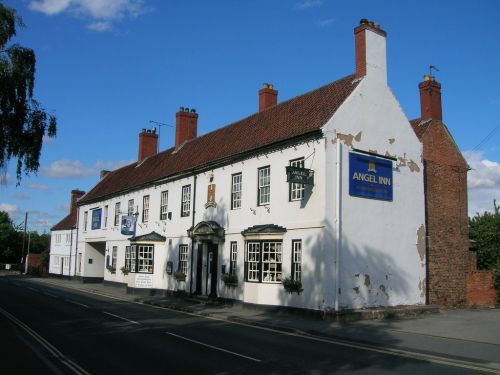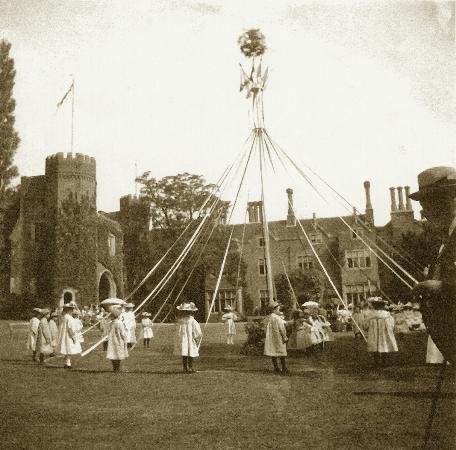Blyth: Difference between revisions
From International Robin Hood Bibliography
m (Text replacement - "=== Sources ===" to "== Sources ==") |
m (Text replacement - "=== Maps ===" to "== Maps ==") |
||
| Line 18: | Line 18: | ||
* {{:Gover, John Eric Bruce 1940a}}, pp. 68-69. | * {{:Gover, John Eric Bruce 1940a}}, pp. 68-69. | ||
== Maps == | |||
* [http://maps.nls.uk/view/101602110#zoom=4&lat=2192&lon=6434&layers=BT O.S. 6" Nottinghamshire V.SE (1885; surveyed 1885)] | * [http://maps.nls.uk/view/101602110#zoom=4&lat=2192&lon=6434&layers=BT O.S. 6" Nottinghamshire V.SE (1885; surveyed 1885)] | ||
* [http://maps.nls.uk/view/101602107#zoom=4&lat=1954&lon=6236&layers=BT O.S. 6" Nottinghamshire V.SE (1900; rev. 1897)] | * [http://maps.nls.uk/view/101602107#zoom=4&lat=1954&lon=6236&layers=BT O.S. 6" Nottinghamshire V.SE (1900; rev. 1897)] | ||
Revision as of 14:36, 12 July 2018
Blyth.

The Angel Inn / J. Thomas.

May Day at Hodsock priory, Blyth / TripAdvisor.com, uploaded by user George B.
By Henrik Thiil Nielsen, 2014-10-10. Revised by Henrik Thiil Nielsen, 2018-07-12.
The north Nottinghamshire village of Blyth is mentioned twice in the Gest (see Evidence below). It is first mentioned in Domesday Book (1086), where it occurs as "Blide".[1] The village is located on the A1, the Great North Road. In the Middle Ages it was a rather more substantial town than now. It had two leper hospitals, a priory, three hermitages as well as markets and fairs. Of its former glory little now remains.[2]
Quotations
[c. 1500:]
My purpos was to have dyned to day
At Blith or Dancastere[3]
For better chepe I myght have dyned
In Blythe or in Dankastere[4]
Sources
- A Gest of Robyn Hode (Child 117), sts. 27, 259.
- Gover, J.E.B.; Mawer, Allen; Stenton, F.M. The Place-Names of Nottinghamshire (English Place-Name Society, vol. XVII) (Cambridge, 1940), pp. 68-69.
Maps
- O.S. 6" Nottinghamshire V.SE (1885; surveyed 1885)
- O.S. 6" Nottinghamshire V.SE (1900; rev. 1897)
- O.S. 6" Nottinghamshire V.SE (1922; rev. 1918)
- O.S. 6" Nottinghamshire V.SE (1950; rev. 1948).
Background
Notes
